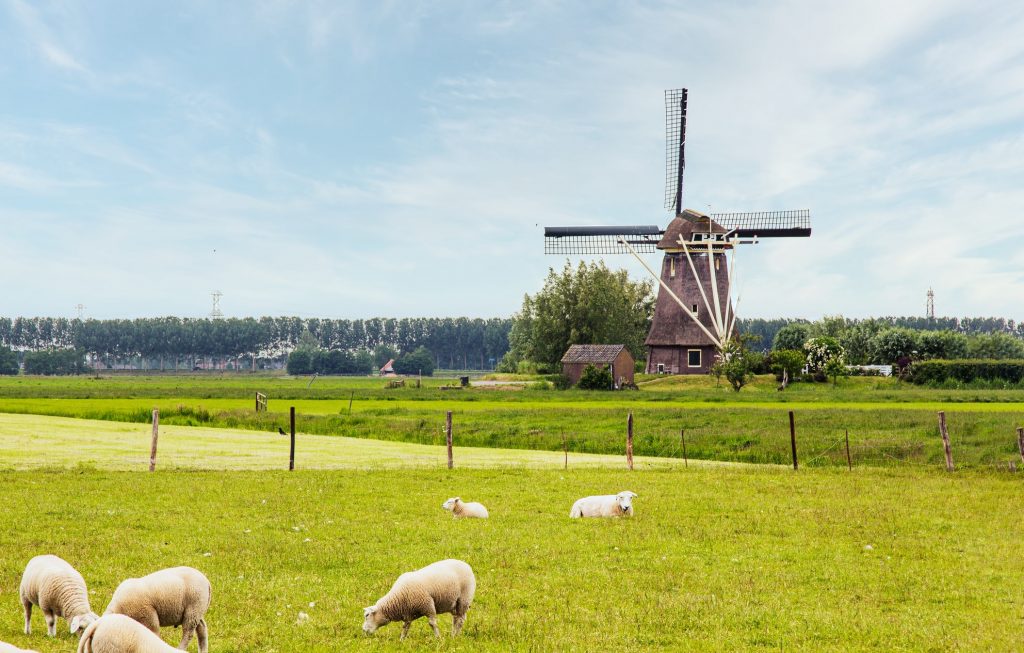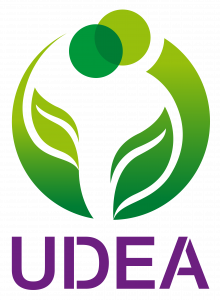
The problem
Climate neutral business operations are a focus point in the CSR policy of Udea, a leading organic trader in the Netherlands. Efforts have been made to reduce carbon emissions as much as possible and currently Udea is focusing on compensation of the remaining, non-avoidable carbon emissions, mainly caused by transport. Sequestration of atmospheric carbon in agricultural soils is the method of choice: it strengthens the relationship in the supply chain with the Dutch farmers that sell their produce to Udea; it is a local solution; and it has the potential to become a unique selling point for Ekoplaza products.
Currently, most farmers that produce for Udea are not using all the available techniques to optimize carbon sequestration. One of the most important reasons being the lack of (financial) reward for additional efforts to optimize the sequestration of carbon. Within the context of the European INTERREG NSR project ‘Carbon Farming’, Udea aims to develop a compensation system together with tarable farmers who produce for the PuurNL label, one of Udea’s private labels. The inclusion of dairy farmers is also being considered.
An important element in the discussion is the availability and collection of data on farm level, linked to carbon sequestration, eg. data regarding the implementation of different soil management techniques and data based on soil samples. Currently, a lot of data regarding soil management and soil condition is being produced, but only a fraction is made available to the farmer.
The solution
Firstly, the overall goal is the development of a technological solution that supports a compensation system for farmers that optimize carbon sequestration on their land. As a following, the partners will set up a project team, including other relevant stakeholders, and specify the aim of the pilot, formulate a strategy and define a timeline. Moreover, the project team will carry out a stakeholder analysis, including all parties involved in the development of a data driven support system for the compensation system, both users and data suppliers. The INTERREG NSR Carbon Farming project serves as a stepping stone for this Pilot. Based on the compensation model developed in the Carbon Farming project, the project team will analyze which data is required to support the model and what are the available sources for these data.
Moreover, next step in the process is to develop different use cases from the perspective of the farmer and Udea, and defining the different subtasks for each use case. A prototype of the technological, data-driven solution will be developed as a Proof of Concept. This prototype will be tested and evaluated, to see if it supports the compensation model as intended. In the end, after it has been optimized, the compensation model, including the prototype, will be prepared for introduction in the field and implemented on a larger scale, to support the monetizing of carbon sequestration by farmers.
The Innovations
Technological: An innovative approach to data sourcing and modelling regarding agricultural soils.
Social: Compensating and appreciating farmers for ecosystem services with a high societal value.
Organisational/Entrepreneurial: Monetizing ecosystem services, creating additional flows of income for farmers.
Institutional: Show casing agricultural soils as an interesting and valuable asset in climate mitigation and adaptation.
Sustainability

Economic: Creation of an additional source of income and building resilient soils, which results in less fluctuation in yields, and therefore in income.

Social: Appreciation of farmers’ efforts regarding ecosystem services and their role in fighting climate change.

Environmental: Positive effects on biodiversity, climate change and overall health and resilience of soils.
The partners



Recent Comments